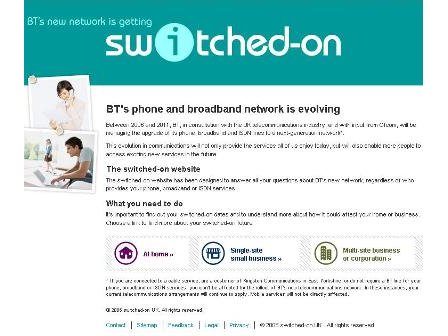BT starts switchover to next-gen telecoms
Converges existing phone lines to a cheaper, faster network

Sign up for breaking news, reviews, opinion, top tech deals, and more.
You are now subscribed
Your newsletter sign-up was successful
Residents in the Welsh village of Wick have become the first subscribers to BT's new generation of telecom network, wholly based on internet protocol (IP) technology.
BT has been working on its IP-based telecom network - called BT 21st century network, or 21CN - for three years. The first 100 subscribers were signed up yesterday.
The 21CN network , described as one of the most ambitious network projects in the world, will make BT able to offer its customers triple play solutions with voice, data and video calls over ADSL2 connections offering speeds of up to 24Mbit/s.
It means converging all of the UK's existing telephone lines into one streamlined, quicker and cheaper network.
The telecom operator is looking to lower its operational costs by £1.9bn per year. The migration of networks is expected to cost £10bn. BT is not willing to disclose any information about potential savings for subscribers at this stage.
BT said it plans to continue to connect its subscribers to the new network rapidly. Next to be converged is the rest of the Cardiff, Bridgend and Pontypridd area.
The aim is to have converted 350,000 phone lines to 21CN by mid-2007, according to Anna Easton, head of media relations at BT. "Our aim is to use this first phase as a learning period," she added.
Sign up for breaking news, reviews, opinion, top tech deals, and more.
By the end of this decade, BT hopes to have the majority of its 30m telephone lines connected to the new network. It will also sell network capacity to 400 other operators in the UK. Anna Lagerkvist
Tech.co.uk was the former name of TechRadar.com. Its staff were at the forefront of the digital publishing revolution, and spearheaded the move to bring consumer technology journalism to its natural home – online. Many of the current TechRadar staff started life a Tech.co.uk staff writer, covering everything from the emerging smartphone market to the evolving market of personal computers. Think of it as the building blocks of the TechRadar you love today.